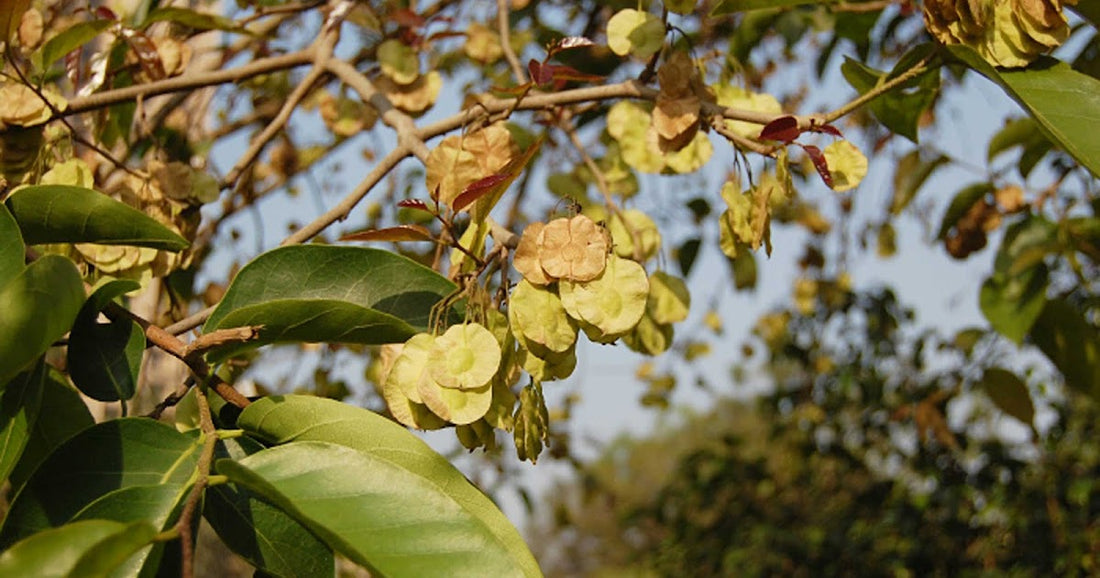

The Papari tree, renowned for its unique properties and importance, is a vital resource in tropical and subtropical regions. This tree not only enhances the environment but also provides significant value to local communities through its diverse appl Read more
Trending
Trees for Corporates
The Papari Tree: A Pillar of Nature and Culture
The Papari tree, renowned for its unique properties and importance, is a vital resource in tropical and subtropical regions. This tree not only enhances the environment but also provides significant value to local communities through its diverse applications and cultural relevance.
Botanical Marvel: The Papari tree, scientifically known as Ficus paparii, is a large tree that can grow up to 80 feet tall. Its expansive canopy and robust root system are hallmarks of its resilience, with smooth bark and clusters of white flowers giving it a distinctive appearance in its natural habitat.
Cultural Symbolism: In many cultures, the Papari tree is revered for its healing properties and role in spiritual ceremonies. The leaves and bark are used in traditional remedies, making it a symbol of health and protection within various indigenous practices.
Ecological Keystone: The Papari tree contributes significantly to its ecosystem by preventing soil erosion and providing shelter to diverse wildlife. Its deep roots stabilize the soil, while its wide canopy offers habitat and food for birds, insects, and animals, thus supporting local biodiversity.
Versatile Uses: The Papari tree is prized for its versatility, with uses ranging from construction timber to herbal medicine. Its hardwood is durable and highly sought after, while the tree’s sap and leaves are used in traditional healing practices for their anti-inflammatory and adhesive properties.
Economic Importance: The Papari tree contributes to the economic well-being of rural communities. Its timber and natural extracts are valuable resources, providing income for those engaged in its cultivation and sustainable harvesting, which supports both local and regional economies.
Traditional Knowledge: Indigenous communities possess extensive knowledge about the Papari tree, utilizing it for medicinal, spiritual, and practical purposes. This traditional understanding is essential for the sustainable use and long-term conservation of the Papari tree in its native regions.
Environmental Sustainability: Sustainable practices in cultivating Papari trees are vital for ecosystem health. Agroforestry systems that include the Papari tree can enhance biodiversity and soil fertility, providing a model for environmental and economic sustainability in tropical regions.
Challenges and Opportunities: The Papari tree faces threats such as deforestation and overharvesting, but these challenges also present opportunities for innovation in sustainable management and reforestation efforts. Encouraging the planting and conservation of Papari trees can aid in land restoration and climate resilience strategies.
Community Empowerment: Supporting local communities in the sustainable management of Papari trees can lead to greater economic stability. Training programs that teach sustainable harvesting techniques and market access can empower farmers to maximize the benefits of this valuable resource.
Climate Resilience: The Papari tree’s adaptability to different environmental conditions makes it an essential player in climate resilience efforts. Its ability to grow in poor soils and withstand harsh conditions enhances its role in restoration and conservation projects aimed at combating climate change.
Consumer Awareness: Raising awareness about the benefits of Papari tree products can encourage responsible consumption. Informed consumers can support sustainably sourced Papari timber and herbal remedies, benefiting both local communities and the environment.
Global Collaboration: Efforts to protect and sustainably use the Papari tree require collaboration between governments, NGOs, and local communities. International partnerships focused on sustainable forestry practices, biodiversity conservation, and economic development are essential to preserving this valuable resource for future generations.
Conclusion: The Papari tree stands as a symbol of resilience, sustainability, and cultural heritage. With its numerous ecological, economic, and cultural benefits, the Papari tree exemplifies the vital relationship between humans and nature. By promoting sustainable practices and supporting local communities, we can ensure the Papari tree’s legacy endures for generations to come.
You may also like
Corporate Plantations
Most Popular
Connect with us
-
👥 Corporates
If you are looking for:
- 🌲 Tree Plantation Events
- 📊 CSR Projects
📧 corporate@growbilliontrees.com
📞 +91 9699723523
💬 +91 9325931304 WhatsApp (Only)
🕒 Mon - Sat | 10am - 7pm IST
-
🧩 Tree Plantation NGOs
If you are looking for:
- 💰 Financial Assistance
- 🤝 Operational Support
📧 support@growbilliontrees.com
📞 +91 9699723523
💬 +91 9325931304 WhatsApp (Only)
🕒 Mon - Sat | 10am - 7pm IST
-
🌼 Individuals
If you are looking for:
- 👥 Group Tree Plantation Drive
- 🌳 Bulk Tree Plantation
📞 +91 9699723523
💬 +91 9325931304 WhatsApp (Only)
🕒 Mon - Sat | 10am - 7pm IST
- Choosing a selection results in a full page refresh.
- Opens in a new window.





















